Spice it Up: Nutmeg
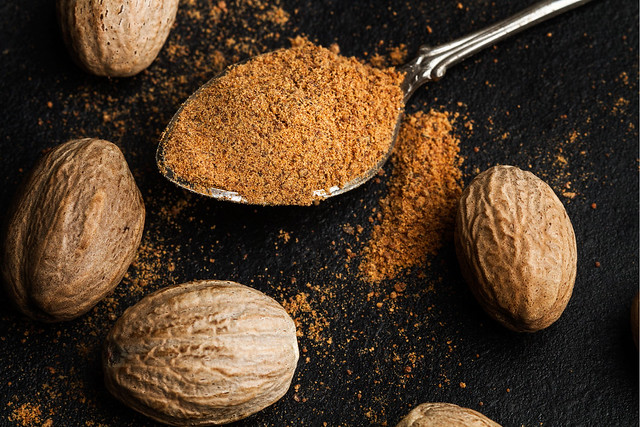
Nutmeg and Mace
Nutmeg comes from an Indonesian tropical evergreen tree that actually produces two spices, nutmeg and mace. Nutmeg is the pit, or seed, of the fruit, and mace is the lacy bright red webbing that surrounds the shell of the pit. The mace is typically removed, dried and ground into a spicy and pungent powder that is used for baking and is often found in doughnuts. The nutmeg seed is dried slowly over an eight week period and can either be left whole or grated into a powder. Cultivating nutmeg is a true test of patience as the nutmeg tree takes seven to nine years to produce fruit after being planted.
History
Nutmeg has been a wildly popular spice long before we were putting it in our eggnog. Evidence suggests that it was used as early as the first century A.D., although it didn’t reach its peak popularity until the 1500s. It has long been popular for its culinary uses, its hallucinogenic effects and its believed medicinal purposes — it was thought to help ward off the plague and heal stomach ailments.
At the time, it was only found on a small Indonesian island where it was very sought-after, and therefore very valuable. In the 1600s, the British and Dutch fought a long war over who would control the island and monopolize the spice. The Dutch ended up gaining control and in exchange gave the British control over what is now modern-day New York. Later during the early 1800s, England temporarily gained control over the islands and they were able to transplant nutmeg trees to be grown elsewhere, namely the country of Grenada. This is why today you can find a nutmeg fruit image featured on the Grenada national flag. Indonesia and Grenada still dominate the production of nutmeg today, although it is also grown in New Guinea, the West Indies and even in Florida.
Uses
Nutmeg is a strong spice with a pungent fragrance and slightly sweet taste, so a little tends to go a long way in cooking and baking. It’s extremely popular for baking and in warm winter beverages, but it can also be used in savory dishes. It’s great in sauces, over vegetables, in sausage, in meat rubs, and sprinkled over potatoes. Nutmeg goes well in creamy or cheesy dishes such as alfredo, because the spiciness adds depth and creates a great contrast against the richness of the cream. It is also popular in masala and curry blends.
Dried nutmeg, while convenient, tends to lose its flavor more quickly than whole nutmeg, so it’s best to purchase it in small amounts. Whole nutmeg has a much longer shelf life and can easily be grated into dishes for delicious fresh flavor.
Simple Ways To Spice It Up
- Sprinkle nutmeg over a fruit salad
- Mix nutmeg with cinnamon and serve over cooked apples or baked pears
- Add nutmeg to scrambled eggs or mix it into your quiche recipe
- Add a pinch of nutmeg into your pancake, waffle or french toast batter
- Sprinkle nutmeg over vegetables before roasting them – it goes particularly well with sweet potatoes, carrots, pumpkin, winter squash, cabbage, and broccoli or cauliflower
- Add nutmeg to your sweet potato or yam casserole
Get Inspired
Spiced Roasted Persimmon Slices
Roasted Butternut Squash and Apple Casserole
Spiced Hot Fruit Bake
Homemade Pumpkin Spice Latte
How To Add Farm Stand products to Your Delivery:
Full Circle members – head on over to our online Farm Stand Market to customize your upcoming delivery. Market is open from noon on Thursday until 10 pm on your cutoff date. After you confirm your produce items, click the orange button “Confirm and Continue To Other Farm Products” to add farm products to your delivery.
Not part of our farm family? Find out if we deliver to your neighborhood.

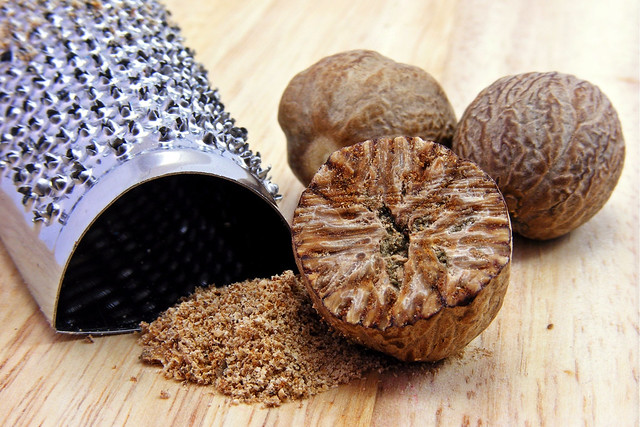

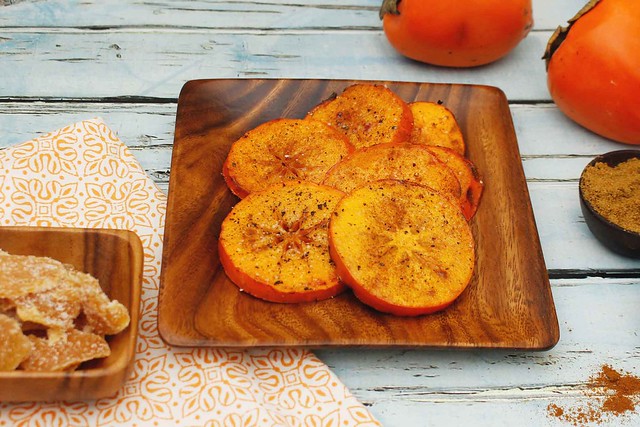



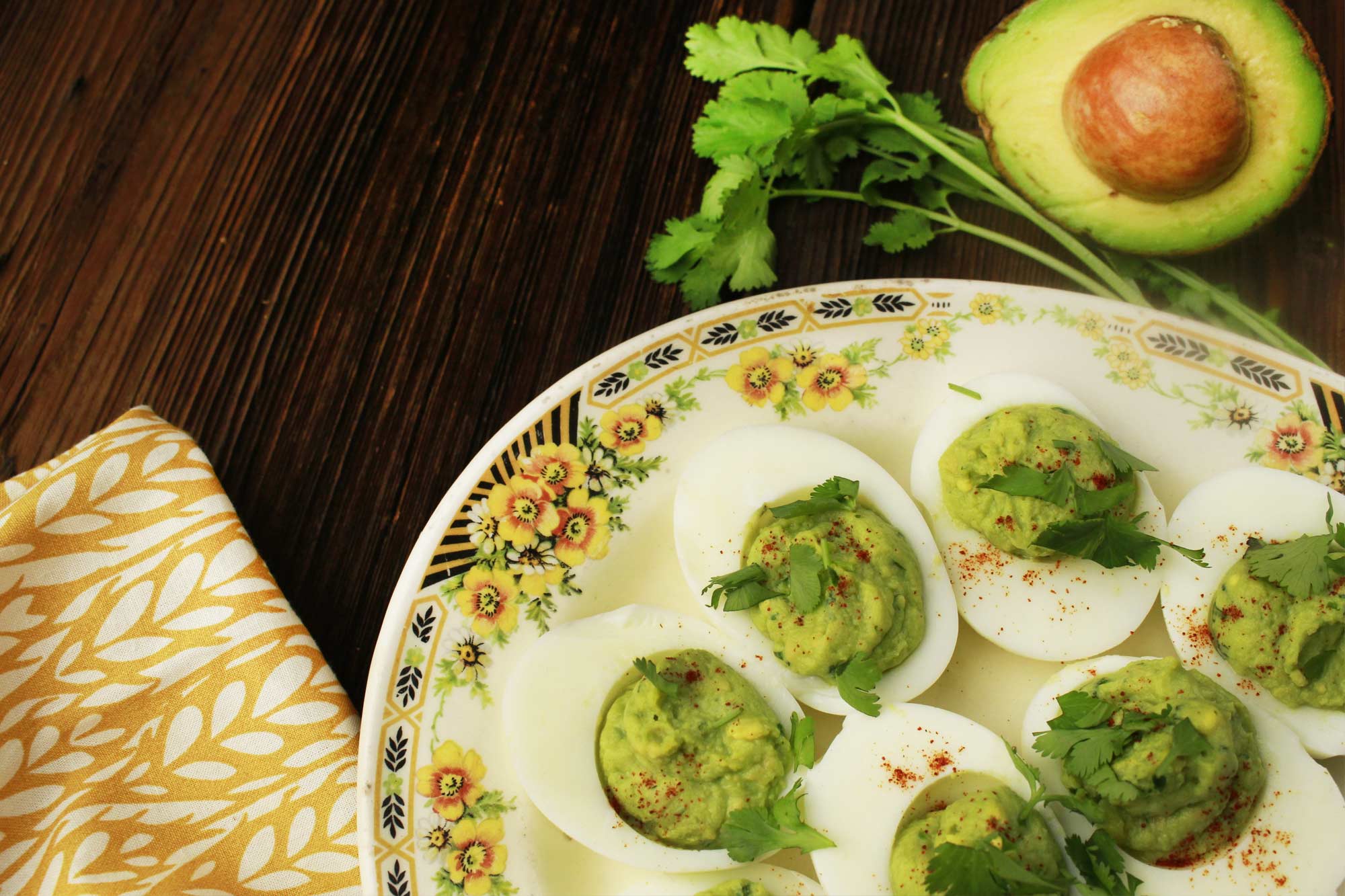
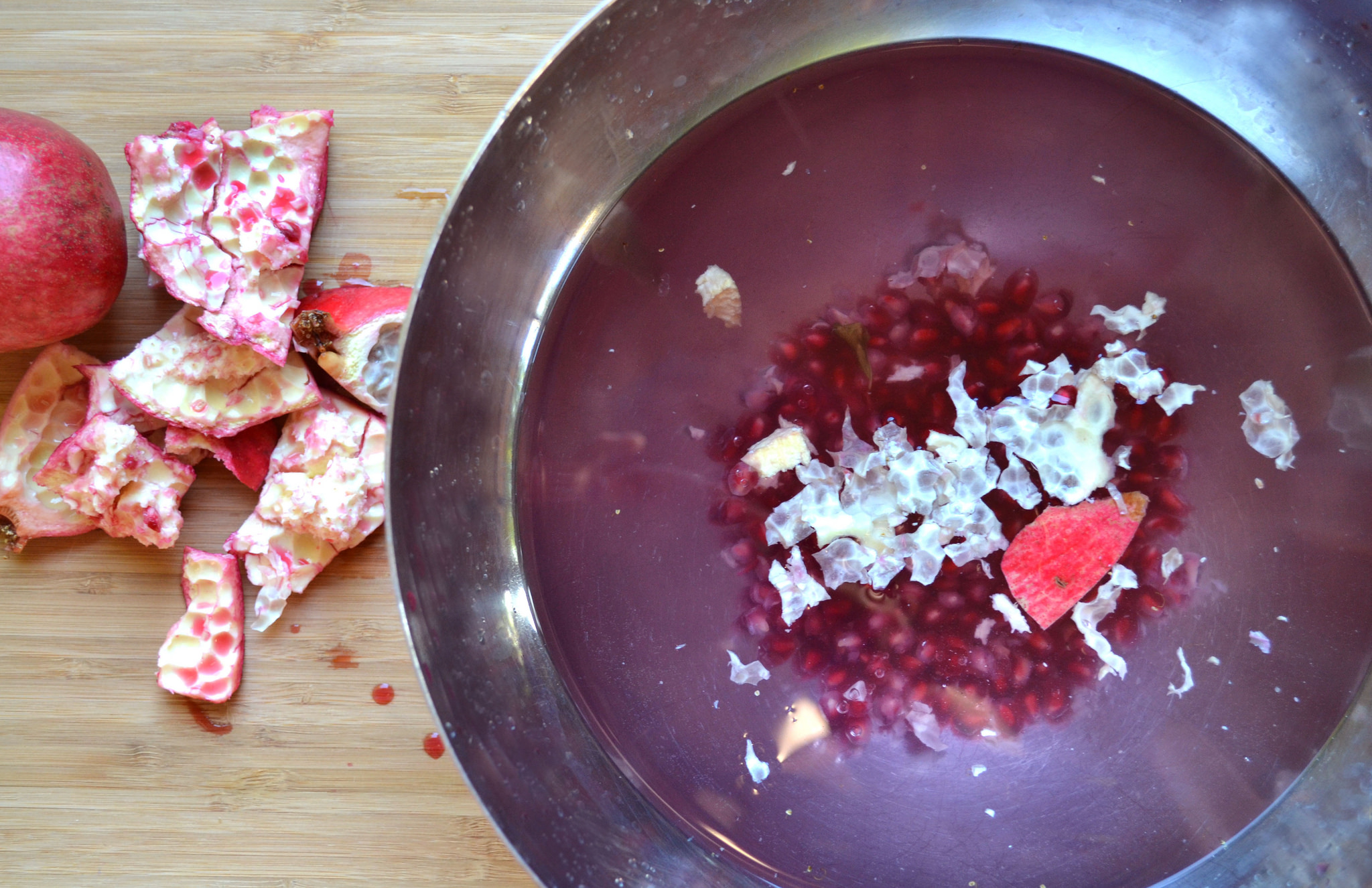
Leave a Reply